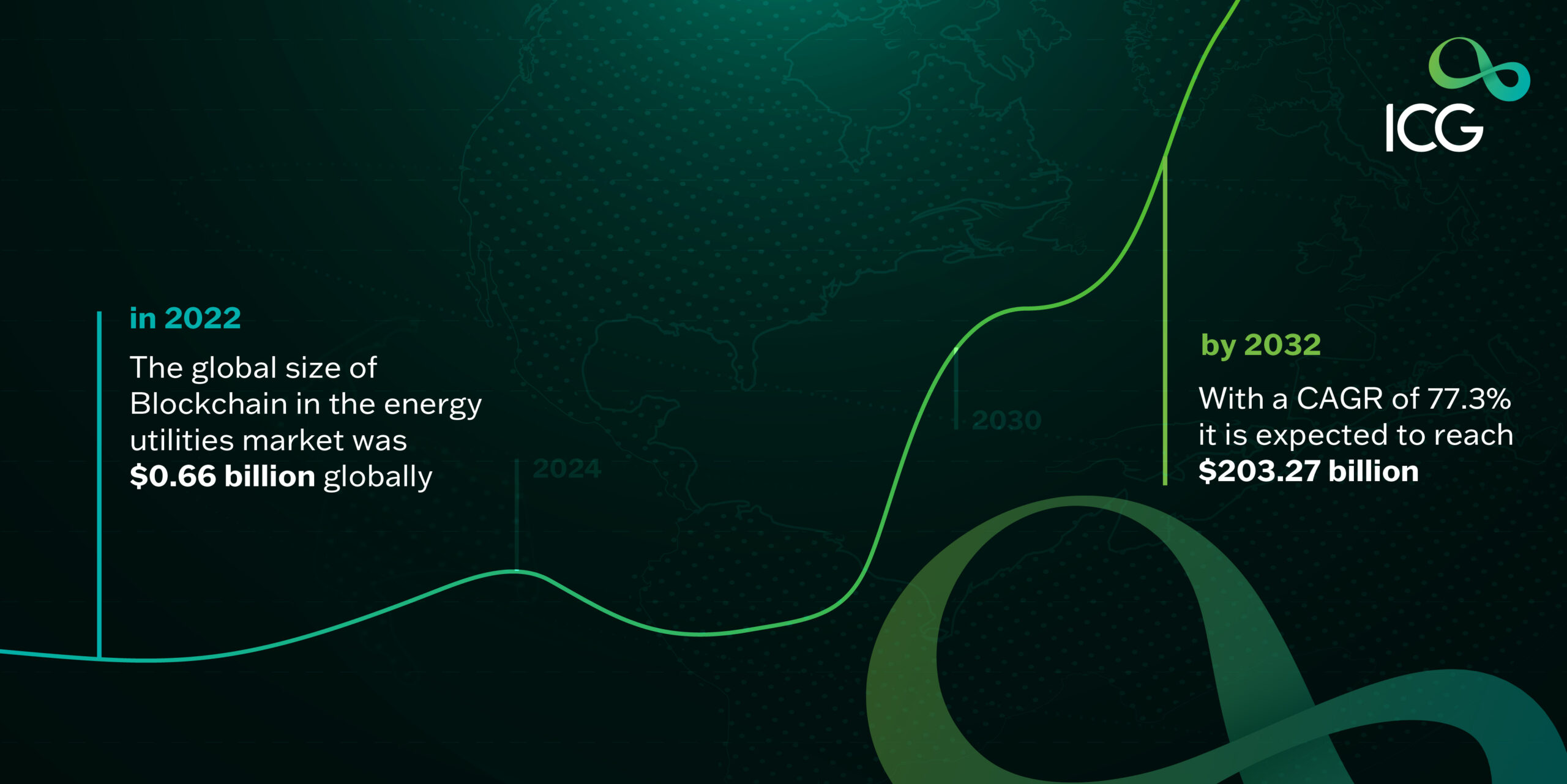Blockchain has been in the industry for a while, and people often associate it with cryptocurrencies. However, the topic is more vast than it is. It has the potential to reach beyond digital finance. Often described as a ledger that bypasses the need for a third party and establishes transparent transaction relations between two, blockchain has grown beyond this. How can this trustworthy technology not change the sustainability and CleanTech industry for good? Blockchain plays a massive role in the global efforts to combat climate change and promote transparency.
Innovation Emergency to Sustainability Crisis
The global climate crisis is real. We are at a point of no return! The United Nations Environment Programme (UNEP) suggests that the world should cut global greenhouse gas emissions by 7.6% every year until 2030 so that global warming can be limited to 1.5 °C above pre-industrial levels. Meanwhile, rising population and industrial expansion are growing energy demand. This is the high time for CleanTech solutions for a transition, and here enters blockchain!
What is Blockchain?
Blockchain in Clean Tech is essentially huge, but a clear understanding of the basics is needed before going directly into the process. Referred to as a decentralized digital ledger, blockchain records all the transactions across multiple networks transparently, making it highly secure and trustworthy. Each block of the transactions is linked to its previous block forming a chain. Being immutable to ensure data integrity, no record can be altered once validated.
Blockchain’s two most prominent features, decentralization and transparency, make it a uniquely perfect solution for everything that needs accountability and trust.
Moving Back to Blockchain in Clean Tech
Energy Grids and Renewable Energy Integration
Clean Tech starts with the energy sector, and blockchain’s contribution significantly has to begin with this sector. Renewable, solar, and wind energy have become prominent. The growing need and unfortunate reduction in them have created a need to make the energy distribution system not only efficient but also secure and transparent.
Traditional energy grids need to be more efficient with the deliberate need for energy supply. Integrating renewable energy makes it highly challenging. Blockchain can create a decentralized energy market to buy and sell energy directly through peer-to-peer, eliminating all the middlemen’s needs.
It is live in Brooklyn, New York. The Brooklyn Microgrid project is famous for its community-driven blockchain integration that lets homeowners with solar panels sell their excess energy to neighbors without any third-party involvement. The block transactions let them manage energy flow transactions and real-time tracking, ensuring transparency.
A Fortune Business Insight Report has projected a CAGR of 37.6% for the global blockchain market to reach USD 1,564.0 million by 2026. Isn’t this explosive growth enough to explain blockchain’s importance in transforming energy systems worldwide?
Trading Carbon Credit with Transparency
It wasn’t reality until now! Individuals and companies can trade in emissions permits. They can buy and sell carbon credits to reduce greenhouse gas emissions and fund climate action projects. It’s a vast market designed to improve sustainability, but it’s been criticized for its lack of accountability and low transparency. Imagine Blockchain integration to Carbon Credit trading! A decentralized ledger can help track carbon credit transactions. Blockchain can be used to record issues, sell, and retirements of all the carbon credits eliminating any manipulation or double-counts.
Sustainable Supply Chains
The supply chain has always been complex, with different stages to reach an end-user, no matter the industry. This complexity has only contributed to further environmental damage. A transparent network like blockchain can make supply chains sustainable. From sourcing the raw materials to delivering the final product, blockchain can keep the process tracked and verified at every stage of a supply chain. It will be easy to hold the companies accountable for their environmental impact and allow the consumers to make informed choices.
According to a market report, blockchain has a huge statistical impact in the supply chain market. For the years 2023 and 2024, the expected size was USD 1.63 billion and USD 2.08 billion, which indeed was the same, and it is expected to grow at a CAGR of 29.14% to reach USD 9.77 billion by 2030.
Circular Economy and Waste Management
The sustainability industry can only be talked about by discussing the circular economy. Blockchain can be used to track the life cycle of the products and materials in the circular economy to minimize all the waste. Reducing our environmental footprint is not a dream anymore! Blockchain can do that to ensure responsible recycling and disposal.
The electronics industry is one of the waste-producing industries. Blockchain and its transparency can help the industry to make it explicitly secure, functional, and functioning to not only track electronic waste but also recycle and dispose it properly.

Blockchain’s Role in the Renewable Energy Certificate (REC) Market
Renewable Energy Certificates (RECs) certify and track renewable energy production. 1 REC is used to represent one megawatt-hour (MWh) of renewable electricity generated and delivered to the grid. Being an exceptionally important trade, it requires transparency yet security that only blockchain can make happen.
Energy Web Foundation (EWF), a non-profit member driver organization, leverages blockchain to manage renewable energy certificates. All the shareholders, from producers to consumers, are allowed to track renewable energy generation and trade RECs in real time to use a decentralized approach to reduce cost and increase trust in the renewable energy market.
Blockchain and Electric Vehicles (EVs)
Electric Vehicles (EVs) are very popular now! The transition to a greener future with EVs has drawn people with a love for nature towards EVs. Governments have established EV charging stations at smaller distances. But, this has given rise to the challenge of managing energy usage. Blockchain can make it a decentralized network to facilitate a secure and transparent process to manage EV charging stations and energy usage.
A German-based blockchain platform launched an open charging network that enables EV-owners to rent their home charging stations and keep track of the transactions transparently using blockchain. It is an efficient way to use renewable energy and promote transparency in the EV industry.
According to market reports, the CAGR of the automotive blockchain market for the decade 2020-2030 is expected to be 31.19%. The market size is expected to reach from USD 0.35 Billion in 2020 to USD 5.29 Billion in 2030.
Challenges and the Road Ahead
Blockchain and the opportunities for promoting sustainability are endless. But, nothing comes without challenges! Blockchain itself has a significant environmental impact, particularly with systems like Bitcoin. Experts reported that Bitcoin mining consumes more energy than many countries like UAE and Argentina. Newer versions are more efficient.
The concept is still at a loose end. To use its full potential for a greener future, governments, industries, and tech companies need to collaborate with the idea of blockchain application. It’s not a one-person task! A regulatory framework with a good investment is required to create an energy-efficient blockchain infrastructure.
Blockchain has the potential to revolutionize the Clean Tech industry and promote sustainability. It can do wonders, from transforming energy grids to enabling transparency in carbon credit trading. Blockchain provides tools and resources that were once never thought about and can make the future accountable for sustainability. Concerning climate change and the global pressure to deal with it, blockchain is a powerful ally to speed up the process of a greener future.
The ICG Approach
At ICG, we offer a customized approach that empowers your teams with the latest insights and technology expertise to navigate the demands of today’s digital age. As Saudi Arabia embarks on its digital transformation journey, ICG plays a pivotal role in shaping the Kingdom’s tech landscape by providing cutting-edge solutions, strategic consultancy, and fostering innovation. Our comprehensive guidance, from fundamental concepts to practical implementation, helps organizations mitigate risks, stay ahead of the competition, and unlock their full potential in the accelerating digital environment.
Ready to talk?
Request your free Consultation to learn more about ICG’s capabilities and enablement to embark on a transformative expedition toward the summit of success.








